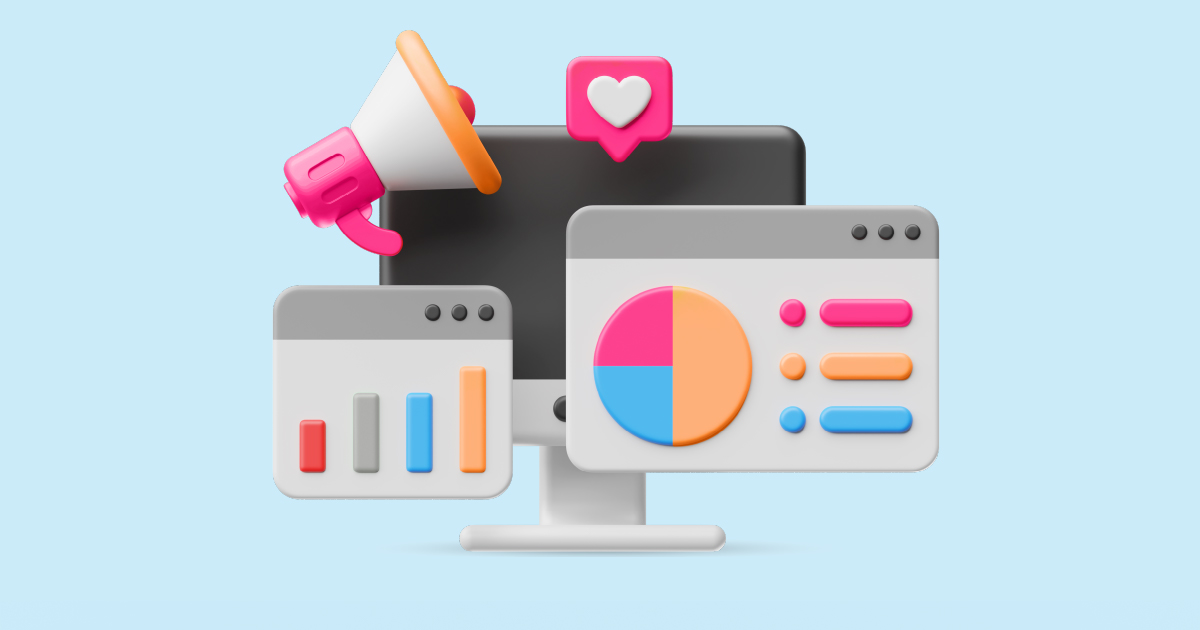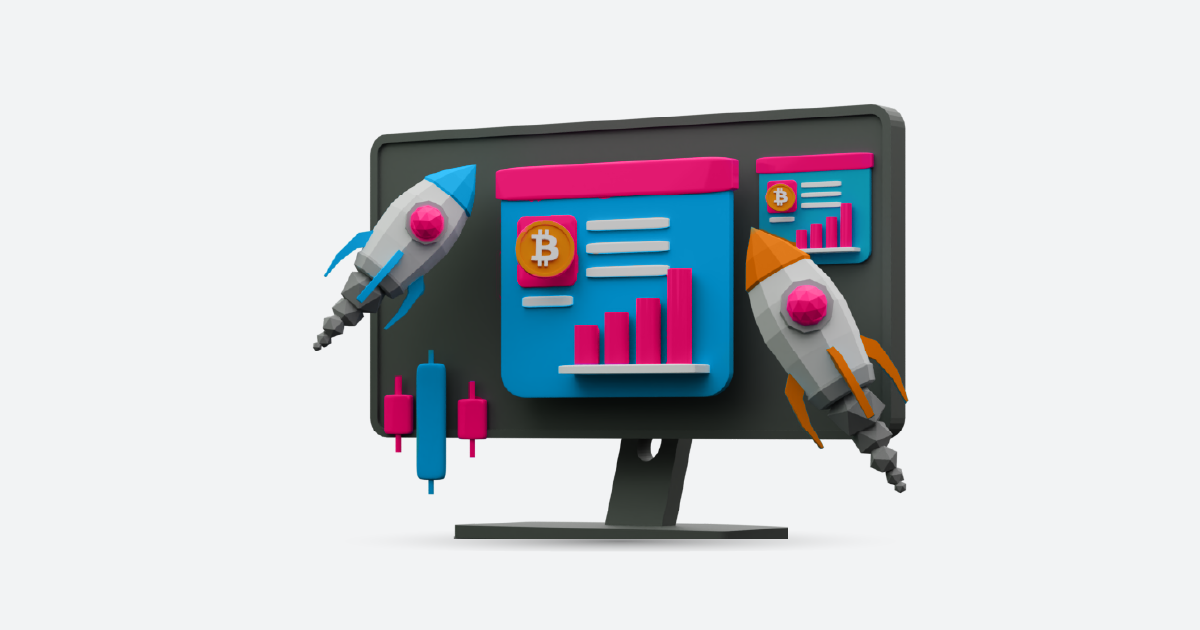Social media has become an integral part of our daily lives, influencing how we communicate, interact, and even make purchasing decisions. With the vast amount of data generated on platforms like Facebook, Twitter, and Instagram, it has become increasingly challenging for businesses to manually track and analyze relevant information. This is where AI social media monitoring comes into play, revolutionizing the way companies gather insights, engage with customers, and manage their online reputation.
Understanding AI Social Media Monitoring

What is AI?
Artificial Intelligence (AI) refers to the simulation of human intelligence processes by machines, typically computer systems. In the context of social media monitoring, AI algorithms are trained to analyze vast amounts of unstructured data, such as text, images, and videos, to extract meaningful insights and patterns.
The Role of AI in Social Media Monitoring
AI plays a crucial role in social media monitoring by automating the process of data collection, analysis, and interpretation. It enables businesses to track brand mentions, monitor customer sentiment, and identify emerging trends in real-time, allowing for proactive decision-making and strategic planning.
Benefits of AI Social Media Monitoring
1. Real-Time Insights
One of the primary benefits of AI social media monitoring is its ability to provide real-time insights into customer conversations and market trends. By continuously monitoring social media channels, businesses can stay ahead of the curve and respond promptly to emerging issues or opportunities.
2. Improved Customer Engagement
AI-powered social media monitoring tools enable businesses to engage with customers more effectively by identifying and responding to their needs and concerns promptly. By leveraging sentiment analysis and natural language processing (NLP) techniques, companies can tailor their responses to match the tone and sentiment of customer interactions.
3. Crisis Management
In the event of a crisis or negative publicity, AI social media monitoring can be invaluable for mitigating damage to a company’s reputation. By quickly identifying and addressing negative sentiment or misinformation, businesses can take proactive steps to manage the situation and maintain customer trust.
4. Competitor Analysis
AI social media monitoring tools also provide valuable insights into competitors’ activities and strategies. By tracking competitor mentions, engagement metrics, and sentiment analysis, businesses can identify gaps in the market, benchmark their performance, and stay ahead of the competition.
How AI Social Media Monitoring Works
1. Data Collection
AI social media monitoring tools collect data from various sources, including public social media platforms, blogs, news websites, and forums. The data is then aggregated and processed to extract relevant information, such as brand mentions, keywords, and trends.
2. Natural Language Processing (NLP)
NLP is a subfield of AI that focuses on the interaction between computers and human languages. In the context of social media monitoring, NLP algorithms are used to analyze and understand the meaning behind text-based content, such as social media posts, comments, and reviews.
3. Sentiment Analysis
Sentiment analysis is a key component of AI social media monitoring, allowing businesses to gauge the overall sentiment of customer conversations and feedback. By classifying text as positive, negative, or neutral, businesses can identify trends, detect emerging issues, and measure customer satisfaction levels.
4. Trend Detection
AI social media monitoring tools use advanced algorithms to detect emerging trends and topics of discussion across various social media platforms. By analyzing patterns in user behavior and content engagement, businesses can identify opportunities for product innovation, content creation, and marketing campaigns.
Key Features to Look for in AI Social Media Monitoring Tools
1. Data Filtering Options
Effective AI social media monitoring tools should offer robust filtering options to help businesses focus on relevant data and insights. This includes the ability to filter by keywords, hashtags, mentions, and sentiment.
2. Customizable Dashboards
Customizable dashboards allow businesses to tailor the presentation of data and insights according to their specific needs and preferences. This enables users to quickly visualize trends, track key metrics, and monitor performance in real time.
3. Integration Capabilities
Integration with other marketing and analytics tools is essential for maximizing the value of AI social media monitoring. Seamless integration allows businesses to combine social media data with other sources of information, such as customer relationship management (CRM) systems, email marketing platforms, and web analytics tools.
4. Advanced Analytics
Advanced analytics features, such as predictive analytics, machine learning, and trend forecasting, can provide businesses with deeper insights and actionable recommendations. These capabilities enable businesses to anticipate customer needs, identify emerging trends, and make data-driven decisions.
Challenges and Limitations
1. Privacy Concerns
One of the main challenges of social media monitoring is privacy concerns related to data collection and analysis. Businesses must ensure compliance with data protection regulations and obtain consent from users before collecting and processing their personal information.
2. Accuracy of Sentiment Analysis
While AI algorithms have improved significantly in recent years, there are still challenges associated with accurately analyzing and interpreting sentiment in social media content. Factors such as sarcasm, irony, and cultural nuances can impact the accuracy of sentiment analysis results.
3. Cost of Implementation
The cost of implementing social media monitoring tools can be prohibitive for some businesses, particularly small and medium-sized enterprises (SMEs). Additionally, ongoing maintenance and training costs may further strain limited resources.
Future Trends
1. Increased Automation
The future of AI social media monitoring lies in increased automation and efficiency. Advances in AI technology, such as natural language processing, machine learning, and predictive analytics, will enable businesses to automate repetitive tasks and streamline the process of data analysis and interpretation.
2. Enhanced Predictive Analytics
Predictive analytics will play a more significant role in social media monitoring, allowing businesses to anticipate customer behavior and market trends with greater accuracy. By analyzing historical data and identifying patterns, businesses can make informed predictions and develop proactive strategies.
3. AI-Powered Influencer Marketing
Social media monitoring tools will facilitate more effective influencer marketing campaigns by identifying and engaging with relevant influencers in real-time. By analyzing influencer performance metrics and audience demographics, businesses can maximize the impact of their influencer partnerships.
Best Practices for Utilizing AI Social Media Monitoring
1. Define Objectives Clearly
Before implementing an social media monitoring strategy, businesses should clearly define their objectives and goals. Whether it’s improving brand awareness, increasing customer engagement, or mitigating reputation risks, having a clear vision will guide decision-making and resource allocation.
2. Regularly Review Metrics
It’s essential to regularly review and analyze social media metrics to track progress toward business objectives and identify areas for improvement. By monitoring key performance indicators (KPIs) such as engagement rate, sentiment score, and brand sentiment, businesses can measure the effectiveness of their social media efforts.
3. Train Staff on Tool Usage
Proper training is critical for maximizing the value of social media monitoring tools. Businesses should invest in training programs to educate staff on tool usage, data interpretation, and best practices for social media management. This will empower employees to leverage the full potential of AI technology and drive business results.
Ethical Considerations
1. Transparency in Data Usage
Businesses must be transparent about how they collect, use, and store data obtained through social media monitoring. Providing clear explanations and obtaining consent from users are essential for building trust and maintaining ethical standards.
2. Respect for User Privacy
Respecting user privacy rights is paramount in social media monitoring. Businesses should adhere to data protection regulations and industry best practices to safeguard user information and prevent unauthorized access or misuse.
3. Avoiding Bias in Analysis
AI algorithms are susceptible to bias, which can lead to inaccurate or unfair results in social media monitoring. Businesses must actively monitor and mitigate bias by regularly auditing algorithms, diversifying training data, and incorporating ethical principles into AI development processes.
Case Studies with Record-Breaking Social Media Impact
Nike’s “Dream Crazy” Campaign
Case Study: In 2018, Nike launched its “Dream Crazy” campaign featuring former NFL player Colin Kaepernick, which became a global phenomenon. Nike saw a 31% increase in sales following the campaign launch, and the ad sparked over 2 million mentions on social media within 24 hours. The campaign’s message of empowerment and social justice resonated with a broad audience, and Nike’s proactive use of AI-powered social media monitoring helped them navigate both the praise and backlash.
Influencer Quote:
LeBron James (@KingJames): “Believe in something, even if it means sacrificing everything. Just Do It. #Nike #DreamCrazy”
This tweet alone garnered over 250,000 likes and amplified the reach of Nike’s message across platforms.
Starbucks’ #RedCupControversy
Case Study: Starbucks faced a social media crisis in 2015 when its minimalist holiday cup design sparked online backlash, with accusations of a “war on Christmas.” The hashtag #RedCup went viral on Twitter, with both supporters and critics voicing opinions. Starbucks used AI social media monitoring to track sentiment in real-time, adjusting their communication strategy. Despite the controversy, Starbucks experienced a 12% increase in U.S. sales during the holiday season, showing how timely monitoring and engagement can turn negative press into profit.
Influencer Quote:
Ellen DeGeneres (@TheEllenShow): “It’s just a cup, folks. But now I want coffee even more. #RedCup”
Ellen’s tweet was widely shared, helping Starbucks regain positive traction.
Coca-Cola’s “Share a Coke” Campaign
Case Study: Coca-Cola’s “Share a Coke” campaign, which encouraged customers to find bottles with their names or the names of friends, created a massive social media buzz. The company used AI-powered social media monitoring to track engagement and user-generated content. During the campaign’s peak, over 500,000 photos were shared using the hashtag #ShareACoke on Instagram, and Coca-Cola’s sales rose by 7% after years of decline.
Influencer Quote:
Selena Gomez (@selenagomez): “Found mine! What’s your #ShareACoke moment?”
Selena’s post alone reached millions of her followers, further boosting the campaign’s visibility.
Record-Breaking Examples
- The Fyre Festival Debacle
Case Study: The infamous Fyre Festival disaster in 2017 saw thousands of social media mentions as stranded attendees took to platforms like Instagram and Twitter to document the chaos. AI-powered social media monitoring tools helped brands like Hulu and Netflix capitalize on the viral conversation, releasing documentaries about the event that received record-breaking viewership numbers. These companies monitored social conversations to understand audience interest and adjusted their marketing strategies in real time.Influencer Quote:
Chrissy Teigen (@chrissyteigen): “I need to watch this Fyre Festival doc NOW. This is insane!”Chrissy’s tweet went viral, sparking even more interest in the Fyre Festival documentaries.
- Popeyes’ Chicken Sandwich Craze
Case Study: In 2019, Popeyes launched its new chicken sandwich, which sparked a viral debate over its superiority compared to rival Chick-fil-A’s sandwich. AI-driven social media monitoring allowed Popeyes to track millions of brand mentions and respond in real-time, helping the chain go viral. The sandwich sold out nationwide in just two weeks, and Popeyes’ digital engagement soared, with over 23 million tweets about the sandwich.Influencer Tweet:
Travis Scott (@trvisXX): “Popeyes chicken sandwich, I’m locked in.”With over 100,000 retweets, this tweet fueled the sandwich craze and highlighted the power of influencer buzz.
Tweets from Influencers
Gary Vaynerchuk (@garyvee): “AI is changing the game in marketing. If you’re not using social media monitoring tools, you’re already behind. Real-time insights mean real-time wins.”
Kim Kardashian (@KimKardashian): “Using AI to analyze trends on social is a game-changer. Businesses need to be more connected with their audience than ever before.”
Conclusion
AI social media monitoring represents a paradigm shift in how businesses gather insights, engage with customers, and manage their online presence. By leveraging AI technology, companies can gain real-time insights, enhance customer engagement, and stay ahead of the competition. However, ethical considerations, privacy concerns, and the accuracy of analysis remain key challenges that must be addressed to realize the full potential of social media monitoring.
Are you ready to take your social media monitoring to the next level? Contact AIM Technologies today to request a demo and discover how our AI-powered solutions can transform your digital strategy.
FAQs
What is social media monitoring?
- Social media monitoring involves the use of artificial intelligence algorithms to track, analyze, and interpret social media data for insights and actionable recommendations.
What are the benefits of social media monitoring?
- Some benefits of social media monitoring include real-time insights, improved customer engagement, crisis management capabilities, and competitor analysis.
How does social media monitoring work?
- Social media monitoring works by collecting data from various social media platforms, analyzing it using natural language processing and sentiment analysis techniques, and providing insights into customer sentiment, trends, and brand mentions.
What are the key features to look for in social media monitoring tools?
- Key features to look for in social media monitoring tools include data filtering options, integration capabilities, and advanced analytics.
What are the future trends in social media monitoring?
- Future trends in social media monitoring include increased automation, enhanced predictive analytics, and AI-powered influencer marketing.




